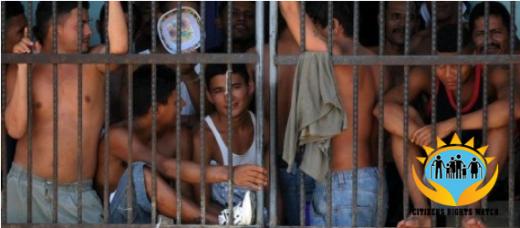By Miguel Rodriguez G. - Image Credits: teleprogreso.tv
Cochabamba - Bolivia, October 2014. Sadly for most of us, this doesn’t really strike as news or novelty, as this situation is repeated throughout the Latin American nations, or at least, through most of them. Still, Honduras is perhaps one of the most critical highpoints of the issue, and also a worthy subject for this article.
There are lot of things that call for critique, but perhaps the overcrowding of jails and penitentiaries in Honduras is one of the most important issues. According to numbers published by the local organization “CONAPREV” (“Comité Nacional de Prevención contra la Tortura” or “National Committee of Torture Prevention” in English) the prison system is currently at 300% of its capacity, which also implicates a growth of more than 10% from 2012 to 2013. This infrastructure problem of Honduras reverberates in Intern’s security and integrity, and limits their access to basic services, such as usage of bathrooms, regular access to water, access to medical attention and other basic rights. Overcrowding also makes it difficult for local law enforcement to keep the peace in both prisons and jails, and sometimes even to prevent interns from escaping. Overpopulation has also given rise to a system of “self-government” of the jails, where there is some degree of real power by some of the convicts; wealthy inmates are given better accommodation in jails, and guaranteed access to privacy, better visiting hours, and, in general, insured better conditions during their stay in prison. In the “San Pedro Sula” Jail, segregation is notorious; prisoners are separated depending on their economic conditions and their individual sentences, and even depending on their membership of some organizations in particular before being sent to jail. For example, convicts known to have been of the “MARA SALVATRUCHA” criminal gang where confined together and in different conditions than those who were not from any particular group when free; the same situation is enjoyed by former members of the national police forces which are convicted to spend time in prison, and other notorious gang members of different criminal gangs. The rest, which did not belong to any important groups before being convicted are treated as “general” convicts, suffering different conditions during their jail time. They also represent about 70% of the total convict population of that particular prison.
Insecurity is also a common factor which comes with overcrowding, and interns live in fear of being beaten or murdered whilst in jail. Between 2011 and 2012 an unbelievable number of 419 prisoners have died “violent” deaths when being held in custody or while serving their sentences. These were mainly victims of selective murders and group killings. Fear of retribution keeps the interns quite of other abuses they suffer. Traffic of drugs, guns, and influence has reached levels which make short term solutions close to impossible.
The fact that prisons keep being heavily overcrowded in Honduras, as the ongoing problem of lack of access to medical care, analphabetism, and virtually no rehabilitation and opportunity of self-improvement for the interns show that the country is far behind on anti-criminal policies, and even farther towards the rehabilitation which Honduran laws pretend to achieve. Reality shows that instead of convicts being rehabilitated, jails offer them chances to improve their delinquency knowledge and to learn how to become better and more secret criminals. Rumors of jails serving as recruitment facilities for notorious criminal groups is not news to citizens of Central America, but conditions for it to happen are probable to continue and keep growing when overcrowding and “self-government” are common trade in jails in prisons in the country.
Even though the country has declared itself in a state of emergency on the prison and jail situation, has had no real positive impact on the lives of interns and convicts, and crime continues to grow in the nation, under the impotent gaze of the population.
Legally it seems that the approach of the law makers of Honduras on the overcrowding and jail and prison problems of the countries is going towards a better “pardon” system, to give some prisoners a chance to get out of jail earlier, thus fighting the current overcrowding, but this is objectionable because of the current cases of corruption of the criminal legal system. Perhaps an approach of “better usage” of sentences which involve imprisonment, would serve its purpose better, as a lot of criminals are in jail for minor crimes; also an improvement in the speed of legal proceedings would improve overcrowding slightly, for the time being. The way preventive detention is managed by local authorities could be bettered legally, to make it more time effective and perhaps also eventually replaced, in some particular cases, by house arrests.
An authentic policy to address crime in Honduras should include, besides the prevention and effective repression of crime and delinquency, an improvement program of the judges and government prosecutors. Infrastructure can be improved by all means, and the construction of better jail facilities would perhaps improve and legally segregate convicts better, to improve chances of rehabilitation by them, instead of jails and prisons being the “Criminal Schools” they are as of today.
Contact: Miguel Rodriguez
Researcher and Member of the Trustees Council of Citizen Rights Watch.


 Miguel Antonio Rodriguez Glaudemans
Miguel Antonio Rodriguez Glaudemans
Post a comment